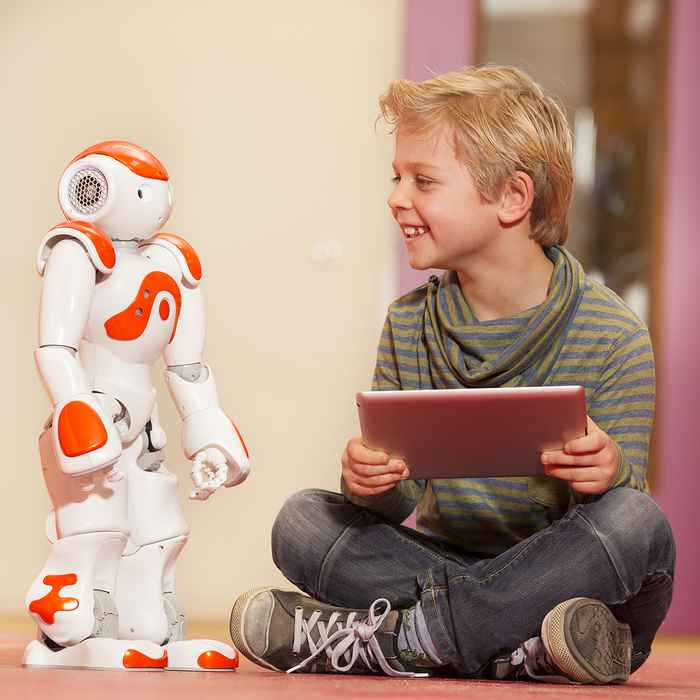Children and robots: future friends?
26 October 2021

Social robots have a wide range of possible societal applications. Prior research has shown that children often think of them as potential friends, meaning that these robots could, for instance, be used to accompany hospitalised children at times when a human presence is not possible. Van Straten: ‘We know child-robot relationships might be part of our future, but there are many questions, both theoretical and practical, surrounding the issue that still need to be addressed.’
Van Straten first worked on the development and validation of three scales that measure children’s closeness toward, trust in, and perceived level of social support from a robot. The scales are intended to help future researchers, as well as practitioners (such as healthcare professionals), to investigate children’s psychological and social responses to the social robots that are becoming part of their daily environments. She then moved on to conduct a series of experimental studies, examining the individual interactions between primary school-age children and a robot.
Transparency about social robots
In recent years, calls for transparency about social robots have increased. From an ethical viewpoint, some scholars have argued that we should aim to avoid giving the impression that these robots are something they are not, and should instead be entirely open – especially with children – about what social robots are and what they are and are not capable of. Yet children have a well-established tendency to form social bonds with non-human entities and may thus develop friendly relationships with robots, even if they understand that robots are not alive. Still, Van Straten’s thesis shows that being transparent with children about a social robot’s lack of human psychological capacities and autonomy can, at least to some extent, change how children perceive and relate to a social robot.
Robots as potential friends
‘Our findings show that children may consider robots as potential friends regardless of their knowledge of a robot’s technological limitations and machine working … this implies that it may be possible to reach the potential benefits of child-robot relationship formation without ‘deceiving’ children into thinking robots are more capable and social than they currently are,’ Van Straten says.
Van Straten also points out that children’s tendency to relate socially to robots may partly depend on the robot’s visual appearance. ‘We need to look at different types of robots. Robots that are designed to look cute and resemble humans may encourage children to think of them as peer-like friends, but the effect might be different with robots that are more mechanical-looking.’
Van Straten sees many opportunities for further research in her field. ‘Children are likely to form relationships with robots, regardless of our stance towards this new kind of social bond … but instead of asking how robots can be turned into ever more humanlike peers, maybe we should be asking ourselves how little is required for children to consider social robots as potential friends – and even whether the emergence of child-robot relationships is, in fact, desirable.’
PhD details
C.L. van Straten: The next best friend? How children perceive and relate to a social robot. Supervisors: Prof. Dr. J. Peter, Dr R.J. Kühne and Dr A. Barco Martelo.
Funding statement: This research has received funding from the European Research Council (ERC), which was granted to Prof. Dr. Jochen Peter.
Time and venue
Caroline van Straten will defend her PhD in the UvA’s Agnietenkapel on Friday, 12 November, at 4 pm.